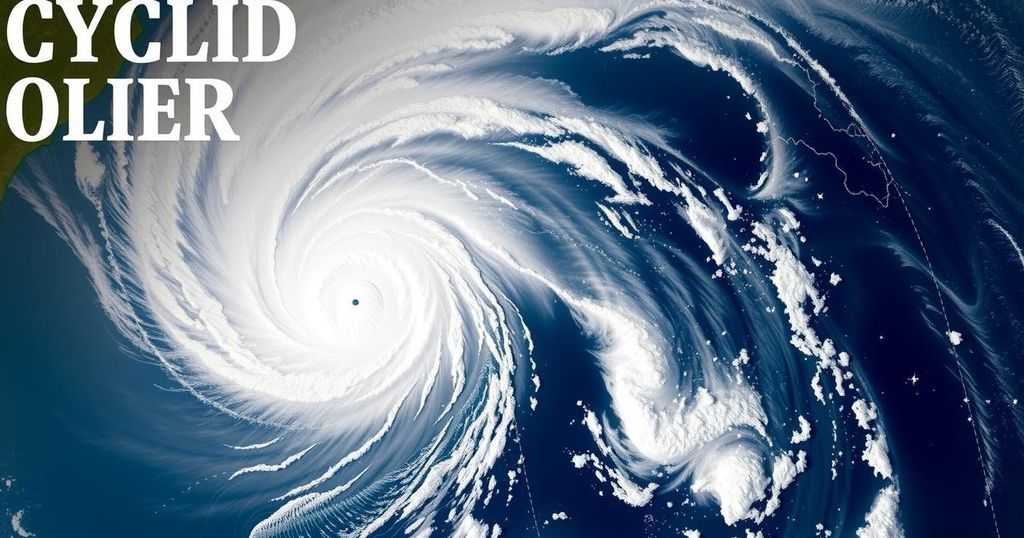Madagascar Evaluates Impact of Cyclone Chido as It Approaches Mozambique
Tropical Cyclone Chido is impacting Southern Africa, causing flooding and potential mudslides, particularly in Mozambique, Malawi, and the Comoros. Currently, Madagascar is assessing damages following the cyclone’s passage, while emergency response efforts are underway to prepare for further adverse effects as Chido approaches Mozambique. The situation underscores the importance of preparedness in mitigating risks associated with extreme weather events.
Madagascar is currently assessing the damage inflicted by Tropical Cyclone Chido, which recently passed near its northern coastline. As of December 14th, Chido has impacted the islands of Mayotte and the Comoros, bringing severe winds and heavy rainfall that have caused flooding and increased risks of mudslides across Southern Africa. The cyclone’s path threatens approximately 2.5 million people in its projected trajectory, especially in Mozambique, where more than 1.7 million individuals may be affected. Emergency response efforts are underway in Madagascar, Mozambique, Malawi, and the Comoros, with local authorities issuing advisories and taking precautions to prepare for potential hazards. As the cyclone continues to move westward, monitoring and strategies are being implemented to mitigate the impact of this extreme weather event.
On December 13th, Cyclone Chido closely approached Madagascar without reporting any damages or casualties, leading to the lifting of cyclone warnings for the north-west coast. However, unsettled weather conditions persisted, prompting authorities to evaluate the cyclone’s effects. Meanwhile, in the Comoros, two regions reported some infrastructural damage, leading to evacuations as the cyclone generated strong winds and hazardous seas.
The cyclone is projected to make landfall in northern Mozambique on December 15th, with authorities anticipating damaging winds exceeding 100-200mm of rainfall, further exacerbating the possibility of flash floods. Current conditions in the surrounding regions, including Malawi and southern Africa, necessitate continuous monitoring for rainfall impacts due to additional weather systems.
Emergency operations have been activated, and humanitarian partners in the affected countries are coordinating to ensure preparedness, resource prepositioning, and public safety measures. Clifton advisories and preparedness drills are being established in conjunction with the regional weather alerts to safeguard affected communities against the advancing cyclone and its subsequent weather threats.
The phenomena of tropical cyclones in Southern Africa have historically posed significant risks to life, infrastructure, and livelihoods. Recent weather patterns, exacerbated by climate change, suggest an increasing frequency and intensity of such events. Tropical Cyclone Chido, which originated in early December 2023, has developed rapidly from a tropical depression into a severe category cyclone, leading to widespread alerts and proactive measures across various nations, including Madagascar, Mozambique, Malawi, and the Comoros. Understanding the geographical and meteorological contexts is critical to comprehending the ongoing humanitarian responses and challenges inherent in these natural disasters.
In summary, Tropical Cyclone Chido poses a significant threat to millions across Southern Africa as it progresses through the region, impacting dense populations in Mozambique, Malawi, and the Comoros. Authorities continue to assess damages in Madagascar and implement emergency protocols to mitigate risks. The ongoing evaluation, coupled with regional coordination of disaster response measures, illustrates the importance of preparedness in the face of increasingly unpredictable weather patterns. As the situation evolves, humanitarian efforts remain focused on protecting lives and minimizing impacts, underscoring the need for collaborative support from both national and international partners.
Original Source: allafrica.com




Post Comment